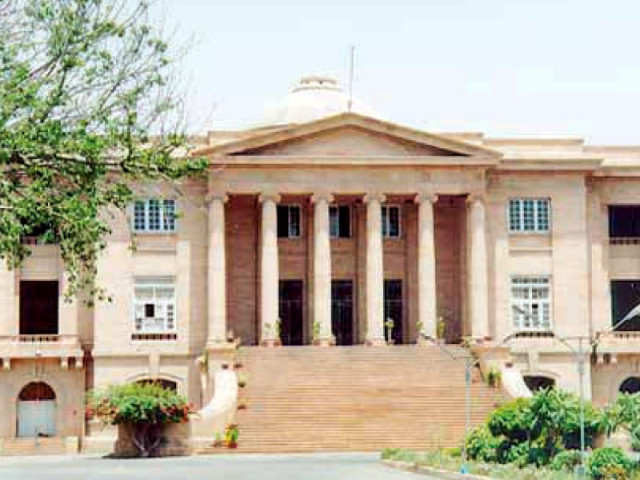SHC annuls over 54,000 recruitments in one fell swoop
Orders Sindh govt to stick to 40:60 urban-rural quota

In a significant development, the Sindh High Court (SHC) has annulled the employment of over 54,000 people hired last year by the PPP government in various departments of Sindh based on fake domiciles.
A SHC bench comprising Justice Zafar Ahmed Rajput issued this order on Saturday while hearing a suit filed by MQM-P leader Khawaja Izharul Hassan through his counsel, Dr Farogh Naseem, in August 2023.
In the suit, the MQM-P had challenged more than 100 advertisements and the job processes initiated in different departments under the Government of Sindh. The SHC had suspended the operation of these advertisements and the induction processes on August 9, 2023.
At the hearing of the case on May 31, Sindh Advocate General Hassan Akbar submitted a statement upon the instructions of Sindh Law Minister Zia Hussain Lanjar, conceding that the Government of Sindh was prepared to withdraw all the advertisements and start the entire process afresh, in accordance with the law, after re-advertising all posts.
“Thousands of people are suffering because of the suit. It is requested that the job advertisements be considered as withdrawn and the instant suit may be disposed of so that the government may re-advertise and conduct the appointments again in accordance with the law,” he said during the hearing on June 10.
The MQM-P had, however, filed a counter-statement, alleging that the statement by the advocate general was not adequate and that the relevant laws had to be specified for future purposes. In further response, the advocate general filed a rejoinder statement.
On Saturday, the court, after hearing arguments from all parties, declared all advertisements and the consequent grant of employment through such advertisements as null, void, and of no legal effect. It stated that in the future, no recruitment will take place based on any walk-in interview by the Government of Sindh.
“The Government of Sindh/defendants shall ensure that jobs are to be filled according to the applicable Urban vis-à-vis Rural quota in the ratio of 40:60 as per SOI(S&GAD) 23/1/71/75-77 dated 16.1.1971 in respect of appointments under Rule 14 of the Sindh Civil Servants (Appointment, Promotion, and Transfer) Rules, 1974 (the Rules-1974), wherever it is applicable.
“The posts in grade-5 to grade-15 and grade-1 to grade-4 shall be filled by the Government of Sindh/defendants under Rules 15 (on a regional/district basis) and grade-16 (on a local basis) of the Rules-1974, respectively.
“All the vacancies shall be filled by the Government of Sindh/defendants as per seats vacant and in accordance
with the Sindh Permanent Residence Certificates Rules, 1971, wherever it is applicable. It shall also be ensured that no vacancy above the sanctioned strength is filled,” said a written order.
The quota system was introduced to ensure equitable representation and distribution of government jobs and educational opportunities between the urban and rural populations.
The system allocates 60% of positions to rural areas and 40% to urban areas, aiming to address historical imbalances in development and access to resources. This approach was intended to bridge the gap between the more developed urban centers, such as Karachi, and the less developed rural regions.
However, the quota system has been a subject of ongoing debate. Proponents argue that it helps uplift underprivileged rural areas by providing them with fair opportunities, while critics claim it may perpetuate divisions and hinder meritocracy.
Despite the controversies, the quota system remains a significant element of Sindh’s socio-political landscape, influencing policies and public discourse on equality and regional development.



















COMMENTS
Comments are moderated and generally will be posted if they are on-topic and not abusive.
For more information, please see our Comments FAQ